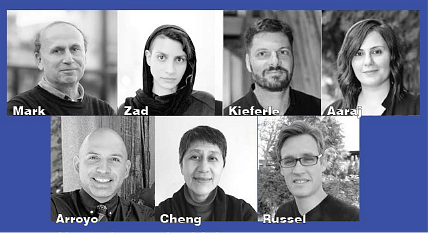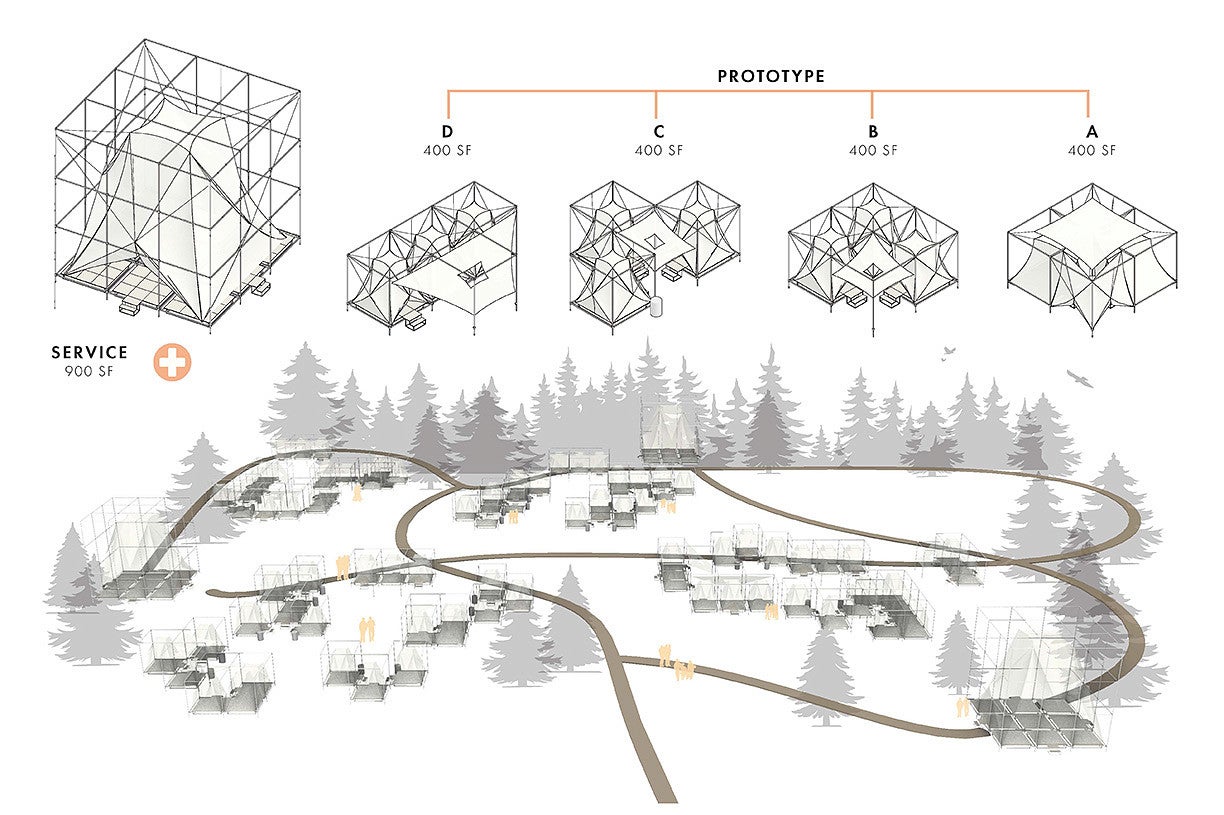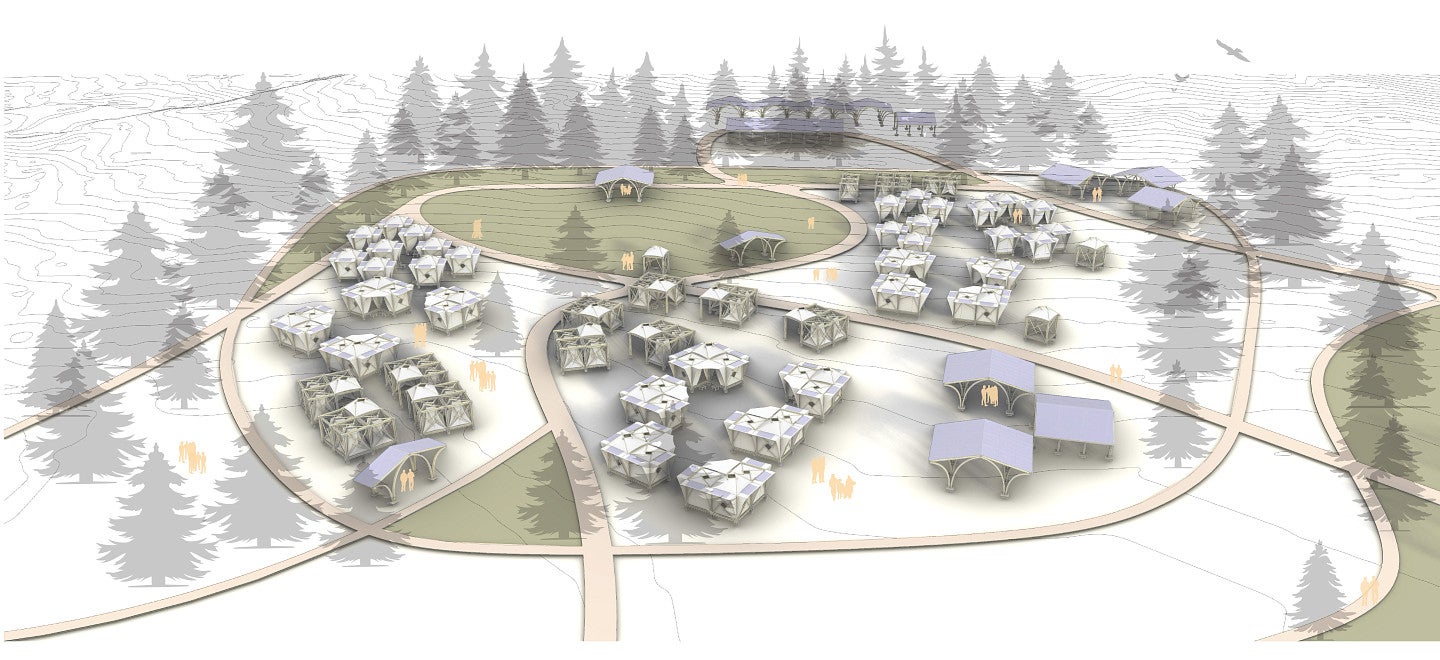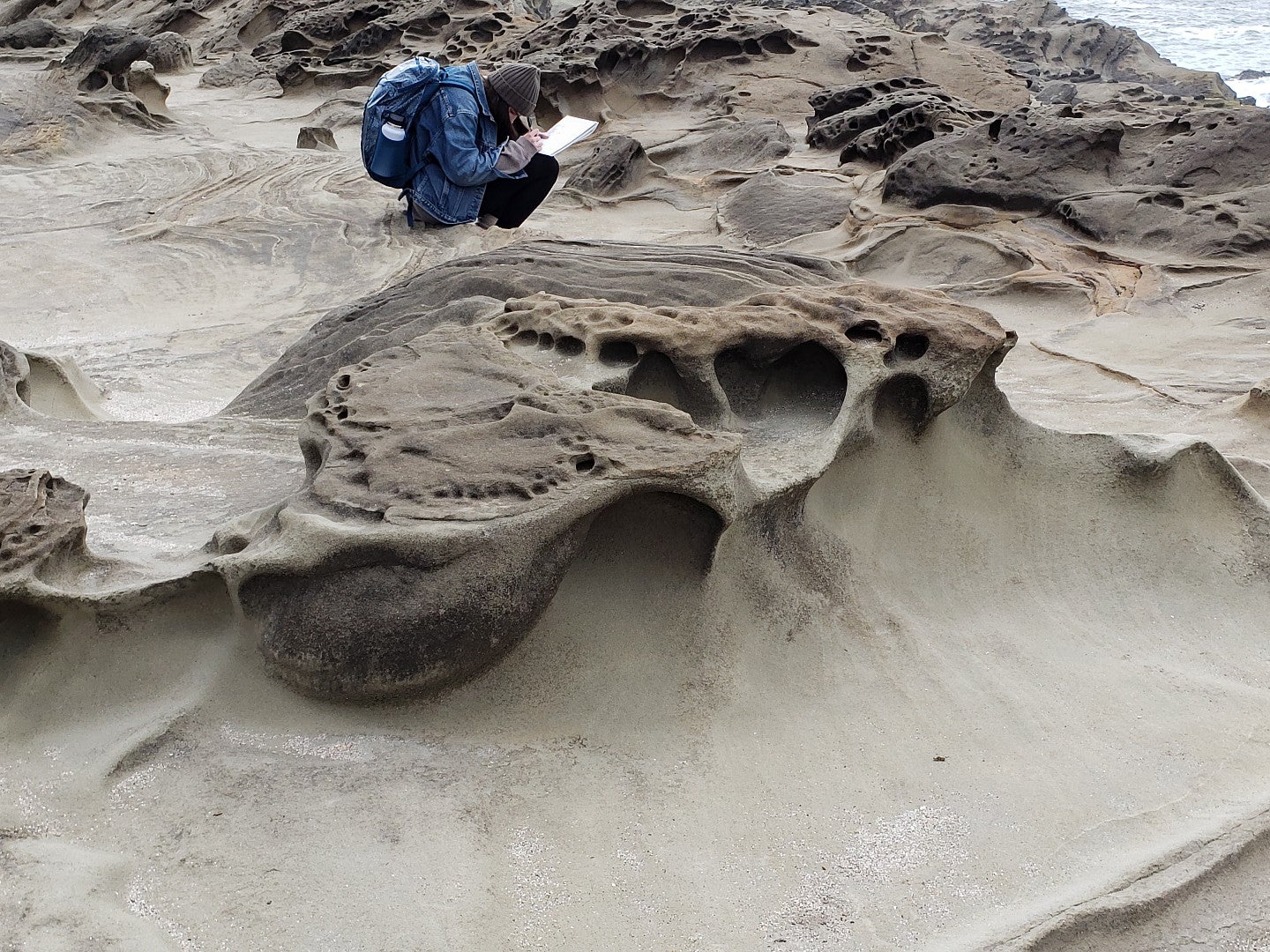
In the spring term, the College of Design’s Department of Architecture welcomed the Adaptive Refugee Housing group for a week of activities on refugee settlements. They brought perspectives from Europe, the Middle East, and the United States to the University of Oregon for a panel discussion, a faculty and grad student seminar, and hands-on Adaptive Shelter Workshops.
Associate Professor of Architecture Nancy Cheng hosted the discussion panel between four visiting architects and UO refugee settlement specialists Kory Russel and John Arroyo. They offered personal connections to the topic of migration and addressed the importance of providing agile housing solutions.


Giang Phung’s design of an emergency settlement for a climate refugees, supervised by Visiting Professor Earl Mark
The panel discussion and the workshop really resonated with students, especially international students, who were eager to share their own challenges. Along with initiatives such as the Design for Spatial Justice Fellowship, the Department of Architecture is offering these experiential learning opportunities to prepare professionals who can meet the diverse challenges of the future. University of Virginia Professor and Adaptive Refugee Housing group member Earl Mark is encouraged by UO's curriculum and is eager to see architectural education change to promote an empathetic and empowering ethos.

"UO has it in its DNA to meet those challenges in ways that few institutions do. And the students here have presented to me a very encouraging sign of a mindset that can do a lot of good,” said Mark. “We won’t solve the problems of adaptive housing with one grand idea, but it may possible to intervene in ways that begin to make circumstances slightly better, and design education may need to humble itself to this constraint. "
Cheng brought together the architects in January 2020, originally to work on flexible emergency building systems that could be crafted from any local materials. The project was inspired by Mark, who after encountering the 2015 flood of Syrian refugees in Europe, reframed his fabric design work to focus on rapid shelters for refugees. In addition to Mark, Cheng, and Zad, the group includes 2020–21 Design for Spatial Justice Fellow Grace Aaraj and Hochschule RheinMain Professor Joachim Kieferle.
Read more about Adaptive Refugee Housing and the past event in Global Perspectives on Adaptive Refugee Housing
